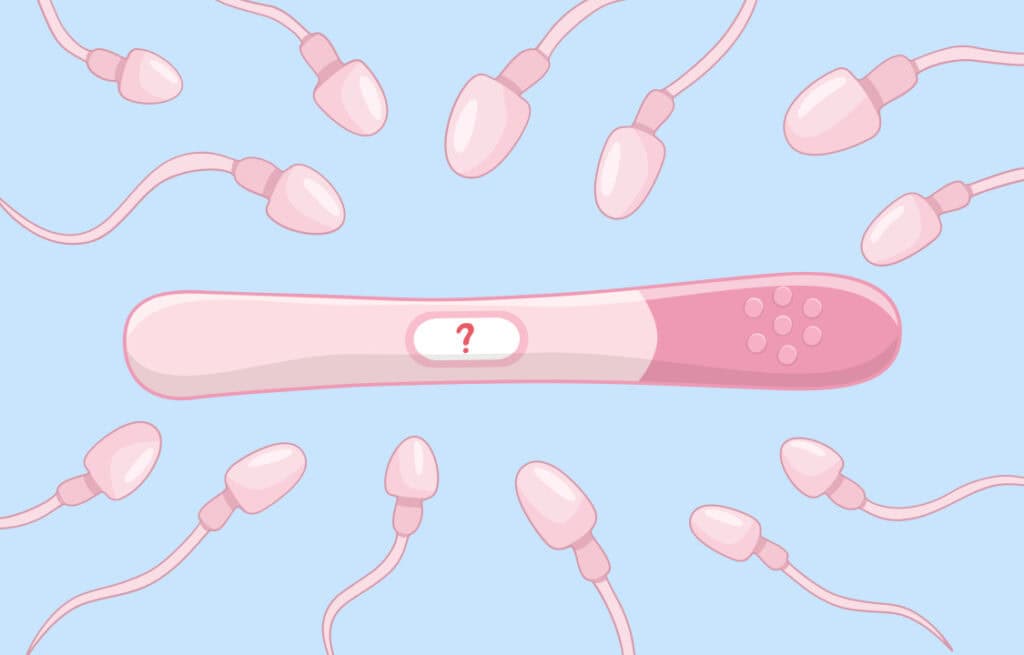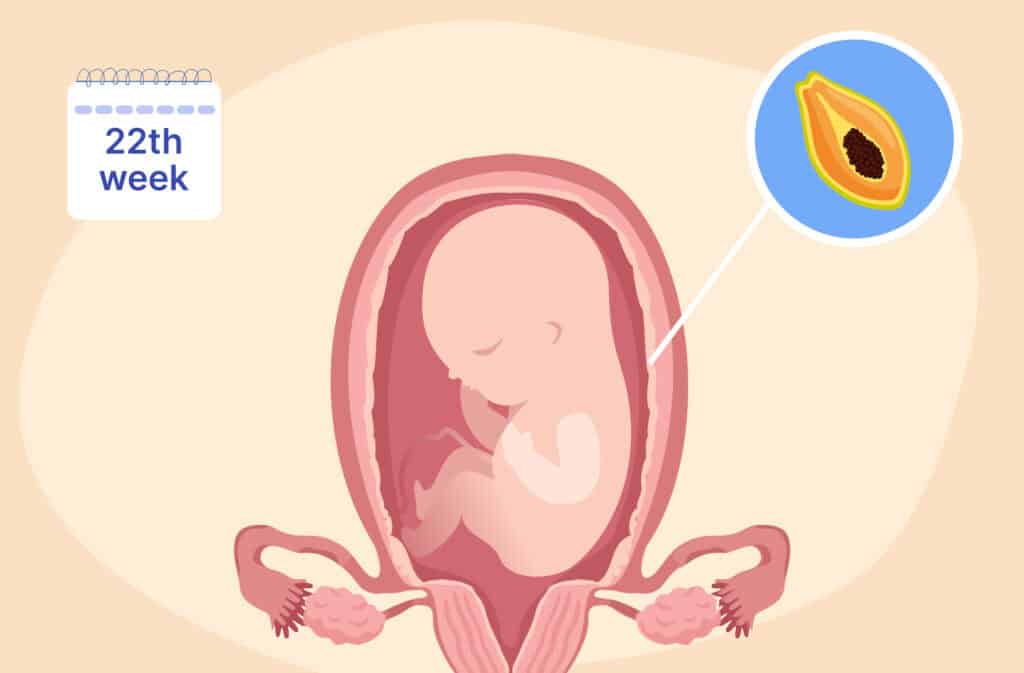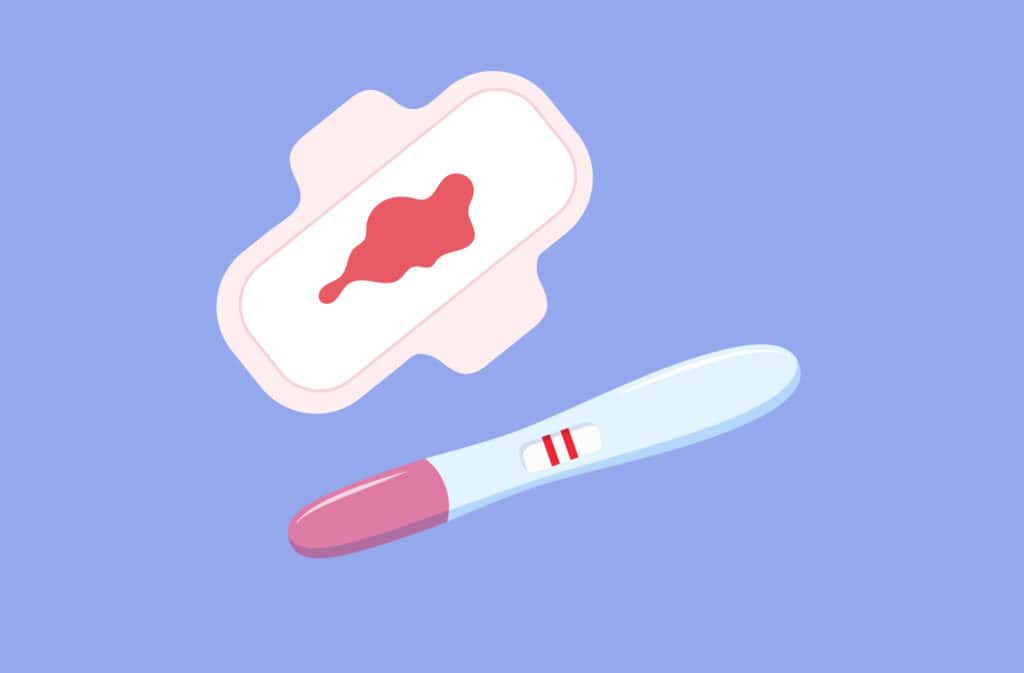Femia > Health Library > Your cycle > Sex > Can you get pregnant from precum? Understanding fertility and your risk of conceiving
Can you get pregnant from precum? Understanding fertility and your risk of conceiving

- Updated Feb 11, 2025
- Published
CRAFTED BY HUMAN
Crafted by human At Femia, we provide accurate and up-to-date information at every stage of your journey, from trying to conceive, pregnancy and postnatal support. All content is created by a real person based on in-depth research and own professional experience. Femia ensures that you will receive expert advice, strict accuracy and a personalized approach from our authors/medical experts. Learn more about our editorial policy.
FACT CHECKED
Fact checked At Femia Health, we maintain the highest standards of editorial excellence in delivering content focused on helping you conceive, guiding you through pregnancy, and supporting you postpartum. Explore our content review principles to learn how we ensure the accuracy and quality of our health and lifestyle tips for every stage of your journey.
Precum or pre-ejaculate is a fluid released by the male body during sexual arousal to lubricate the urethra and neutralize acidity to prepare for ejaculation. Since this fluid comes from the Cowper’s gland instead of the testicles, it doesn’t contain sperm on its own but can pick up the sperm left in the urethra from recent ejaculation.
The chances of getting pregnant from precum are lower than from ejaculation but they are still there. They are affected by:
- The presence of sperm in the precum.
- Timing of sexual activity relative to ovulation.
- Sperm viability and health.
To avoid unintended pregnancy, avoid relying on the withdrawal method and opt for contraception instead.
Precum is a fluid meant for lubrication of the urethra, which is released before ejaculation. This fluid may or may not contain sperm, which means the chances of getting pregnant from precum are real, though small.
How likely is it to get pregnant from precum while ovulating or during one’s fertile window? What factors affect this likelihood? And how can the risk be prevented? In this guide, we’ll clarify the definition of precum and address the likelihood of getting pregnant from it.
Femia offers the most accurate tool for determining fertile days
What is precum, and can it cause pregnancy?
Precum, also known as pre-ejaculate, is a fluid naturally released by a male body during sexual arousal. The primary purpose of this fluid is to lubricate the urethra and neutralize acidity, thus, preparing the body for ejaculation and facilitating sperm passage.
Unlike sperm, precum comes from the Cowper’s gland instead of the testicles. That is, it doesn’t contain sperm by default and cannot cause pregnancy. Nevertheless, there is a chance that this fluid will pick up sperm left in the urethra from a previous ejaculation, which can potentially cause pregnancy.
Chances of getting pregnant from precum
Although precum itself doesn’t cause pregnancy, its ability to transmit sperm heightens the chance of conception. This likelihood is affected by three primary factors:
- Presence of sperm in the precum. Precum can pick up sperm left from the previous ejaculation in the urethra.
- Timing of sexual activity relative to ovulation. Pregnancy can only happen if sperm gets into a female’s reproductive system within her fertility window, which is around five days leading up to ovulation until 1 day after ovulation. This is how long the sperm can survive and ovulation is the time when a released egg can get fertilized. Hence, the timing relative to ovulation also matters when trying to answer the question “What are the chances of getting pregnant from precum while ovulating?”
- Sperm viability and health. Viability and health directly affect the sperm’s ability to stay in the urethra from the previous ejaculation, as well as its ability to move through the female reproductive tract to fertilize the egg. Hence, these two indicators also affect your precum pregnancy chance.
👉Find out more: Is it safe to have sex while on your period? Everything you need to know
So how likely are you to get pregnant from precum? The chances are generally much lower than with ejaculation. While specific data is limited, research conducted by the National Institutes of Health suggests that the chances of pregnancy with the withdrawal method are about 4 percent with “perfect use.” Perfect use means that the partner withdraws before ejaculation, but the presence of precum is thought to contribute to this 4 percent pregnancy rate, making it not a flawless method. The same research states that the typical failure rate of the withdrawal method of birth control is 22 percent. This means that about 22 out of 100 people who use this method consistently will become pregnant within a year. This is roughly the number of pregnancies caused by precum rather than ejaculation itself, so it’s rare but possible.
Precum during ovulation: Higher risk?
Ovulation is a short phase in the middle of your menstrual cycle. In a standard 28-day cycle, it occurs on the 14th day. During ovulation, female ovaries release a mature egg, which remains available for fertilization within 12 to 24 hours.
Basically, it’s only possible for sperm to fertilize the egg after it has been released (during ovulation) and for the next 12-24 hours while it’s still available. So if you’re wondering what are the chances of getting pregnant from precum while ovulating, they are the highest when you ovulate because you’re the most fertile at this time.
Chances of getting pregnant from precum 3 days before ovulation
While ovulation is the time when the egg is available for fertilization and conception can actually happen, it’s also important to consider the viability of sperm. Sperm typically live for up to five days and can stay in a female reproductive tract, the whole time waiting to fertilize an egg. That’s why the 5-6 days leading up to ovulation are called the fertile window. This is the time when it’s possible to get pregnant if you have unprotected sex.
How often can precum cause pregnancy?
Although the precum pregnancy chance is much lower than that from ejaculate, conceiving from it is still possible, especially if:
- You have unprotected sex. When there is no contraception, there is always a chance of getting pregnant, even with a withdrawal method. The likelihood of this depends on a range of factors, including the phase of the woman’s cycle and the man’s sperm viability, but some chance is always present if sex is unprotected.
- The male has recently ejaculated. Since precum doesn’t carry sperm on its own, your partner must have some sperm left in the urethra from the past ejaculation so that precum can pick it up. However, it’s important to note that sperm can’t survive in the urethra for as long as in the female reproductive tract due to acidity and leftover salts from urine. A study published in Forensic Science International found the last motile spermatozoa in the post-ejaculatory urine of a fertile man after 4.5 hours.
Femia offers the most accurate tool for determining fertile days
How to reduce the risk of pregnancy from precum
So the chances of getting pregnant from precum are low but still there. In order to mitigate them, you can refer to the following advice:
- Stop relying on a withdrawal method as a method of contraception because it can’t offer 100% protection from pregnancy as there might be leftover sperm in the precum.
- Start using your preferred method of contraception (i.e. condoms, birth control, etc.) on a regular basis.
Myths and misconceptions about precum and pregnancy
There have always been many concerns about precum and pregnancy. Let’s address some of the primary myths that are there:
Myth: Precum never contains sperm
Fact: Precum is released from the Cowper’s gland instead of the testicles, which means it doesn’t contain sperm on its own. However, it can pick up the sperm left in the urethra from the previous ejaculation.
Myth: You can’t get pregnant from precum.
Fact: Of course, the likelihood of getting pregnant from precum is lower than from direct ejaculation, yet it’s still there.
Myth: STIs are only carried by sperm.
Fact: Precum may also carry sexually transmitted infections. Thus, by relying on a withdrawal method as the sole method of contraception, you are at risk of both getting pregnant and acquiring sexually transmitted infections (STIs).
👉Find out more: Why do I feel sick after sex? Understanding post-sex nausea in women
When to take a pregnancy test
As you already know, there is always a small chance of pregnancy if you’ve had unprotected sex and were exposed to precum during it. If you suspect that you’re pregnant, you can take a pregnancy test to confirm or rule out your guess.
Typically, the best time to test for pregnancy is once you know you’ve missed your period, which is around two weeks after having unprotected sex. Testing too early can lead to a false negative result as it takes time for a fertilized egg to implant, which is when a pregnancy actually begins.
When to seek professional advice
Consider consulting with a healthcare provider about the available methods of contraception to pick an option that suits you and reduces the risk of unintended pregnancy.
Also, consider talking to your doctor if you haven’t been planning a pregnancy but suspect it due to noticing any early signs. A healthcare provider should help you confirm or refute your guess and provide personalized guidance.
Questions from the Femia community
Can sperm in precum survive long enough to cause pregnancy?
Yes, once it enters a female reproductive tract, it can survive for up to 5 days during the fertile window and fertilize an egg during ovulation, causing pregnancy.
Does urinating before sex reduce the risk of pregnancy from precum?
Yes, urinating may help remove residual sperm left from the previous ejaculation from the urethra. Thus, doing this before sex can help reduce the risk of pregnancy.
Does the amount of precum released affect the chances of pregnancy?
No, the volume of precum released during intercourse doesn’t affect the likelihood of pregnancy. However, the presence of sperm in the fluid, as well as the cycle phase and sperm viability, matter.
Does drinking alcohol affect the likelihood of sperm being in precum?
No, alcohol does not directly influence the presence of sperm in the precum. However, drinking it may impact judgment, increasing the possibility of unprotected sex and, respectively, the likelihood of pregnancy.
The bottom line
“Can u get pregnant from precum?” – This question has consistently generated discussion across a variety of forums and platforms. To this day, there are plenty of myths and misconceptions concerning the possibility of getting pregnant without direct ejaculation into the female reproductive tract, which is why 33.3% of men and 18% of women still report withdrawal as their preferred method of contraception. But can it actually protect you from unintended pregnancy? – The answer is “no.”
In reality, precum may contain sperm left from previous ejaculation. That is, there is always a small but real precum pregnancy chance, especially if unprotected sex takes place in the fertile window or during ovulation. To mitigate the risk of unintended pregnancy, it’s important to avoid withdrawal as the sole method of contraception and to use other methods, such as condoms or birth control, instead. Remember that the statement that you can’t get pregnant from precum is a myth and to make informed decisions where your fertility is concerned.
References
- “What is pre-ejaculatory fluid (also known as pre-cum), and can it cause pregnancy?” International Planned Parenthood Federation, 13, Feb. 2019. https://www.ippf.org/blogs/what-pre-ejaculatory-fluid-also-known-pre-cum-and-can-it-cause-pregnancy.
- “Calculating Your Monthly Fertility Window.” Johns Hopkins Medicine. https://www.hopkinsmedicine.org/health/wellness-and-prevention/calculating-your-monthly-fertility-window.
- “Contraceptive Use by Method 2019.” United Nations, 2019. https://www.un.org/development/desa/pd/sites/www.un.org.development.desa.pd/files/files/documents/2020/Jan/un_2019_contraceptiveusebymethod_databooklet.pdf.
- Patricio C. Gargollo. “How long do sperm live after ejaculation?” Mayo Clinic, 5, May, 2022. https://www.mayoclinic.org/healthy-lifestyle/getting-pregnant/expert-answers/pregnancy/faq-20058504#:~:text=Ejaculated%20sperm%20remain%20viable%20for,decades%20when%20semen%20is%20frozen.
- Engelbertz F, Korda JB, Engelmann U, Rothschild M, Banaschak S. “Longevity of spermatozoa in the post-ejaculatory urine of fertile men.” Forensic Sci Int, 30, Jan. 2010. https://pubmed.ncbi.nlm.nih.gov/19889505/#:~:text=The%20last%20motile%20spermatozoa%20could,be%20confirmed%20by%20further%20investigations.
- “Withdrawal method (coitus interruptus).” Mayo Clinic, 7, May, 2022. https://www.mayoclinic.org/tests-procedures/withdrawal-method/about/pac-20395283#:~:text=Even%20then%2C%20the%20withdrawal%20method,protection%20from%20sexually%20transmitted%20infections.
- Sağlık Bilimleri, Meslekleri Dergisi. “Reasons for couples to prefer withdrawal method in Turkey.” ResearchGate, Apr. 2015. https://www.researchgate.net/publication/277907106_Reasons_for_couples_to_prefer_withdrawal_method_in_Turkey.

At 22 weeks pregnant, your baby is growing quickly and developing key senses. Learn about baby size, symptoms, and tips for week 22 pregnancy.

Discover the symptoms, causes, treatment and misconceptions of low testosterone in women, including age-related testosterone levels and when to consult a doctor.

Discover if you can get pregnant on your period. Learn about menstrual cycle phases, fertility windows, and common misconceptions. Expert insights from Femia.

